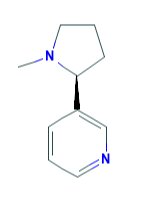Nicotine as Class A Poison | 20 Aug 2019
Karnataka has amended Poisons (Possessions and Sale) Rules 2015 by notifying nicotine as Class A poison.
- The move aims at strengthening the enforcement of the ban on production and sale of electronic cigarettes.
Background
- In August 2018, the Union Health Ministry had instructed all the States to put a ban on the sale of e-cigarettes and other Electronic Nicotine Delivery Systems (ENDS) under their jurisdiction.
- Though Karnataka had banned the sale and production of e-cigarettes in June 2016, but illegal sale and smuggling of nicotine cartridges and e-cigarettes is rampant in the State.
Nicotine
- Nicotine is a plant alkaloid that contains nitrogen, which is found in several types of plants, including the tobacco plant and can also be produced synthetically.

- Nicotine is both a sedative and a stimulant.
- Nicotine is used as a direct substance in e-cigarettes and the content ranges up to 36 mg/mL. Although regular cigarettes too have nicotine, but it ranges between 1.2 to 1.4 mg/mL.
- Chewing or snorting tobacco products usually releases more nicotine into the body than smoking.
Harmful Effect of Nicotine
- Nicotine on direct application in humans causes irritation and burning sensation in the mouth and throat, increased salivation, nausea, abdominal pain, vomiting and diarrhea.
- It also increases pulse rate and blood pressure.
Classification of Poison
US Department of Transport divides poisons in two classes
- Class-A: Highly toxic chemicals which even in very small quantities as gas or vapor in air are dangerous to life such as cyanogen, hydrocyanic acid, nitrogen peroxide, and phosgene.
- Class-B: Chemicals other than those included in Class-A and comparatively less toxic but considered dangerous.
